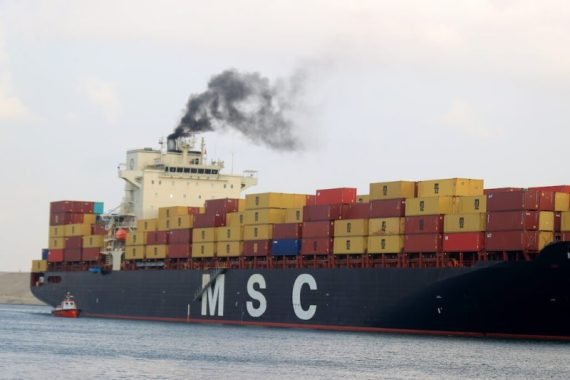I
n the early months of 2024, global trade has encountered significant setbacks as a result of disruptions at two crucial shipping routes, according to the International Monetary Fund (IMF). Attacks on vessels in the Red Sea area have notably impacted traffic through the Suez Canal, a pivotal maritime route connecting Asia and Europe.
Approximately 15 percent of the global maritime trade volume normally traverses this waterway. Simultaneously, a severe drought at the Panama Canal has led to restrictions, substantially reducing daily ship crossings since October, impeding maritime trade through another vital chokepoint.
The Chart of the Week, utilizing data from the PortWatch platform, illustrates the trade volume transiting through these key shipping lanes. High-frequency transit estimates reveal a staggering 50 percent year-over-year drop in trade volume passing through the Suez Canal in the first two months of 2024.
The Cape of Good Hope
In response to the Red Sea attacks and subsequent delays in the Suez Canal, several shipping companies rerouted their vessels around the Cape of Good Hope. This alternative route experienced a remarkable surge of approximately 74 percent compared to the previous year’s level.
Meanwhile, the transit trade volume through the Panama Canal witnessed a substantial decline, falling by almost 32 percent in the same period compared to the prior year. The drought-related restrictions at the Panama Canal have posed additional challenges to maritime trade, further contributing to disruptions in the global supply chain.
The PortWatch platform also indicates a 6.7 percent year-over-year decline in port calls to the 70 ports tracked in sub-Saharan Africa during January and February 2024. Similar declines were observed in the European Union and the Middle East and Central Asia, with reductions of 5.3 percent.
These trends are likely reflective of the transitory effects of extended shipping times. If prolonged, the repercussions of these disruptions may temporarily hinder supply chains in affected countries and exert upward pressure on inflation, partly due to increased shipping costs.
Recommended
Impact on recorded imports and exports
One significant implication of these shipping disruptions is the potential impact on official statistics related to recorded imports and exports. Customs records, upon which official trade statistics are based, may be influenced by the temporary rerouting of ships. This could complicate the accurate assessment of the underlying momentum of global trade and economic activity in the months to come.
For instance, merchandise trade reports for January in various countries across Africa, the Middle East, and Europe may show slowing import growth, as some imports that would typically be recorded in January were only delivered in February. Moreover, many low-income countries heavily reliant on import duties for fiscal revenues may report lower-than-expected revenue for January due to these delays. The situation calls for close monitoring as stakeholders navigate the challenges posed by disruptions in key maritime chokepoints.
Source: IMF





